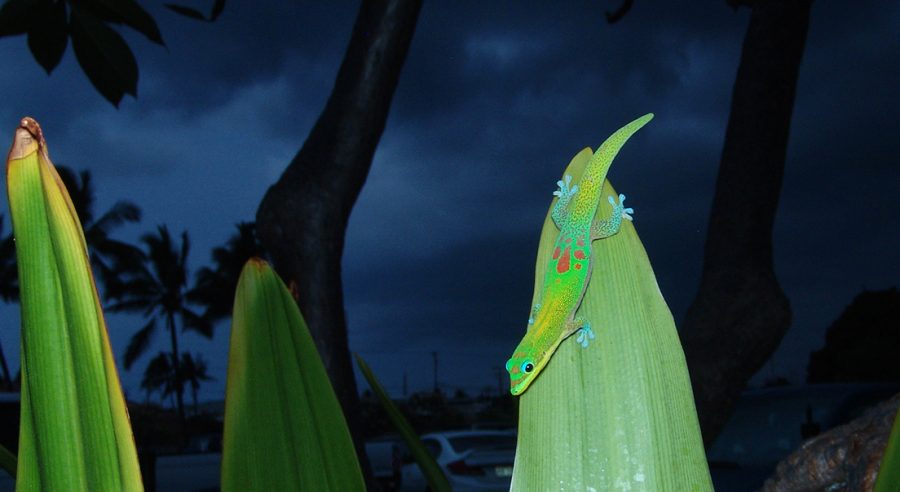Izzy Matamoros, a junior in the College of Health Sciences, is one of the few people on the fifth floor of Wehr Life Sciences. She is outnumbered by lizards.
“Two years ago, I didn’t even know what a gecko was, and now I know so much about them,” Matamoros said. “Aside from having one-to-one interactions with the geckos, I have the opportunity to learn more about their biological background from Tony and the grad students.”
She works in the lab to feed the animals and cleans cages with Tony Gamble, an associate professor of evolutionary biology and herpetologist. Gamble and his team of students study the sex chromosomes of various reptiles and amphibians to gain a better understanding of how evolution occurred.
The sex-determining mechanisms of reptiles and amphibians are the key to unraveling the mystery of how life on earth began and how it has evolved, Gamble said.
The research group finds herptiles, which are reptiles or amphibians, interesting because of what lies beneath the surface in the genes of the animals. Gamble is interested in the various sex-determining mechanisms of reptiles and amphibians specifically because they can vary so much within one species.
“Over evolutionary time, these different (chromosome) systems transition back and forth between each other. We published a paper a few years ago that showed that just among lizards and snakes, there have been about 30 of these transitions,” Gamble said. “What’s even more shocking is that we don’t even know the sex-determining mechanisms of most lizard species.”
It takes many students working together to be able to compile as many papers as Gamble does.
One of them is Jaison Banks, a senior in the College of Arts & Sciences. He has worked in Gamble’s lab since he was a sophomore. What drew him to the lab was his passion for the research subjects. From a young age, Banks has had an interest in herpetology.
“Coming to Marquette, I knew I wanted to be a (biology) major. I actually wanted to be a herpetologist, which is the study of reptiles and amphibians,” Banks said. “My sophomore year here at Marquette I was in a cell bio class, but I didn’t really like it. Then I talked to my professor, and he ended up connecting me with Dr. Gamble, who is a herpetologist.”
After talking to Gamble, Banks said he started volunteering in the lab right away.
During his time in the lab, Banks has worked for class credits, as a volunteer and for a paycheck. As a result, he’s had his name published on a variety of Gamble’s papers and has gotten hands-on experience doing work that he’s passionate about.
“The work I have done has focused primarily on snakes and chameleons and their sex determination mechanisms. The lab also has a lizard room filled with hundreds of lizards from many different species,” Banks said.
Currently, Gamble has students studying speciation and embryonic development in lizards, and he has a grant from the National Science Foundation to study gliding lizards.
“Studying evolution can be challenging because the history of the earth has evolved once, so you can’t have replicates,” he said. “By looking at these independently-derived sex chromosome systems, we can begin to find the generalities that are common amongst all of them.”


